
I guess it's kinda pitiful to say this is an impromptu update spurred on by another Steam Gifts event daring people to clear games included in Humble Monthly, now Choice, no matter when they were part of it. Which is neat because it gives me an opportunity to try out my “expanded minis” review format where I still hang onto vertical covers, but ultimately gives me more than double the word count previous one had. You decide whether it worked out or not seeing as three paragraph structure was what I gravitated to for clarity's sake. I already miss screenshots, though.
When it comes to non-video games stuff I've returned to some reading and posted a YA werewolf novel review. Pretty surprised by the outcome. This also marks my 50th Report proper and it only took me three years and some change to get here. Felt like hundred at times, but I'm glad to see you're still tolerating me. 😊
Lethal League ( PC (Steam) – Fighting – 2014 ) + TRAILER
Going by time played it's fairly obvious my exposure to Lethal League has been limited, but that's not a slight against the game in any way. What's being offered simply isn't my thing in this case. That doesn't mean it's bad, though.
Imagine a fighting game except all the fighting is done by batting a ball among two contestants and if one gets hit he loses a point. After you lose five, you're out. That's it in a nutshell, but beauty of a short title like this really lies in game flow specifically. I would say six characters is on the low side compared to your average fighting game rosters these days even with varied approaches. From Sonata's heavy hammer to Candyman's absolute magical nonsense I wanted to choke him over teleportation balls all manner of variations on fast, gimmick, strong, etc are present and accounted for. Real kicker here is you are, well, hitting a baseball ball around which means accounting for direction and ricocheting seeing as you don't REALLY have a block function. You can punt the ball which robs it of momentum and steadies in mid-air, but that also creates this chance for it to get stolen if you're not quick enough. If there's actually a key element to Lethal League it's how said ball builds up speed with each hit that lands leading to fairly ludicrous speeds unless stopped. As in “reality is being torn to pieces and each impact causes black holes” kind of speed.
I could complain about the lack of story, but does that really matter here? Gameplay is extremely sound and feels just right once you get a grip on mechanics. Lack of singleplayer content beyond mere challenge mode is worth pointing out, though. Bring a friend if you plan to stick around. Aforementioned mode quickly got on my nerves as it forced team matches on me while team AI is dodgy at best of times. 2D visuals never detracted from the experience for me... possibly because I was keeping my eyes on ever faster ball rather than characters themselves. Same goes for sound assets and I would recommend trying out training just so you see and hear what mental end game looks like.
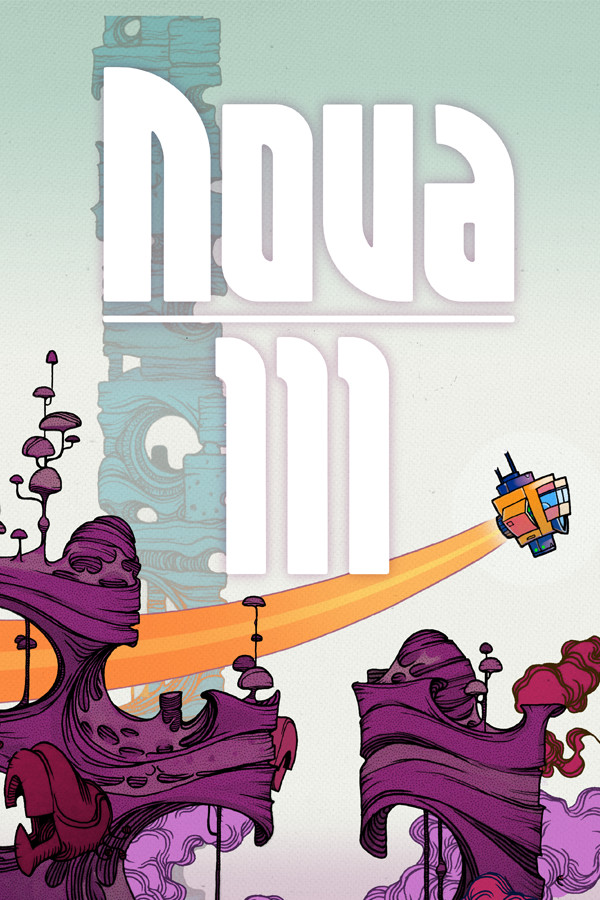
Nova-111 ( PC (Steam) – Strategy, Action – 2015 ) + TRAILER
Starting with this opening alone I found Nova-111 a difficult topic to broach. Not because it's bad, far from it actually, but more because it seems like such an interesting shape-defying title to be pigeon holed the way many games get today. What at first seems like a turn-based roguelike meets strategy quickly introduces real-time elements you're forced to react to. Result is this anomaly where two different schools of thought interact while you only have turn-based tools to respond and it can get quite tense at times. You're slowly eased from “take your time, enemies react to your moves” to “oh god, why is everything on fire?” as you approach the finale and it's a well executed build-up.
Getting into specifics – you control this small utility machine and quickly surmise, from what your Dr. Science mentor keeps telling you, that something has gone horribly wrong and it's up to you to fix space time or whatnot. I found the entire thing to air on more humorous side of things with every scientist you rescue sharing a funny quote with you or outright delving into reference and meme territory. Game still retains sense of gravitas to convey the notion this is, in fact, serious as you see everything going crazy whether you're in ruins of your lab or nowhere in time. While three worlds each with six levels may seem short the looks between them are definitely unique visually to stand apart and game settles into gradually introducing new enemy types and powers for you to play with. Approach to treating bosses as half-puzzles, half-fights was also the correct way to go considering you're navigating around enemies as much as levels throughout the entire game as you wait for cooldowns and Science meter to refill so you can unleash attacks.
Soft colors and pleasing 2D visuals were a correct decision in this case and game is extremely inviting as a result. Three tilesets employed look otherworldly and go well with oddly ethereal soundtrack, which does admittedly get overwhelmed by all the sound effects when things heat up.
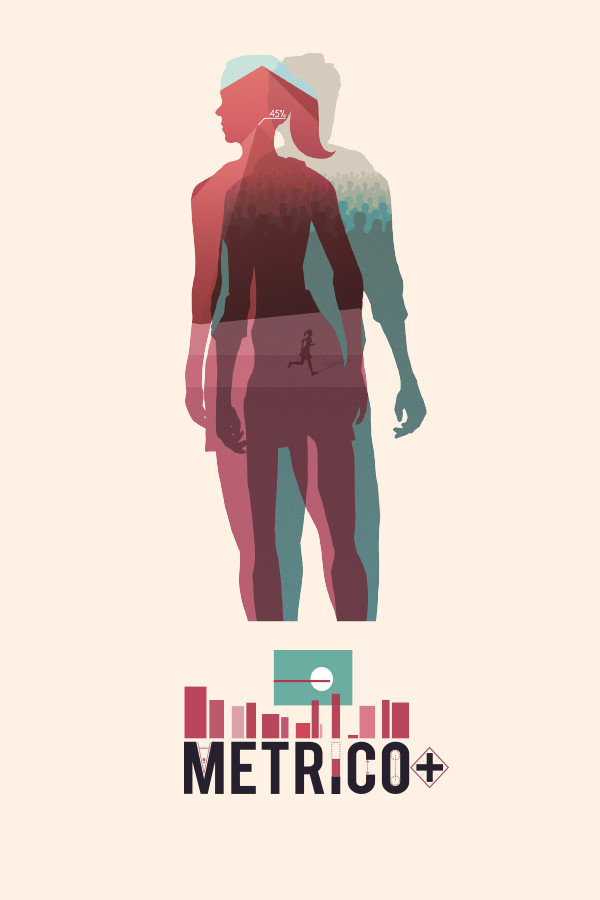
Metrico+ ( PC (Steam) – Puzzle, Platformer – 2016 ) + TRAILER
It's easy to get tricked by Metrico+ thinking you're getting one of those artsy platformer that seem to have cropped up left and right, but you'd be successfully fooled. Before I get into the game proper I'll hand wave the story because that's precisely how the game handles it. Employing metaphoric imagery with symbolism only where you yourself see some ensures Metrico+ has a narrative that's dependent entirely on you. Taken at face value it's about a character becoming less human on his abstract journey.
Gameplay is something entirely different and you could say, taken with visual style emphasizing metrics for everything you do alongside levels morphing before your very eyes as you progress providing this visceral testing feedback, it's almost like pulling back the curtain on platformers and puzzlers as respective genres because everything is given to you as clinical data. Things like default character jump distance and other elements you intuitively take for granted in similar games become something you're acutely aware of when all other distractions are removed. This is purely about testing your character's limits and each new world introduces more abilities to use. In the purest fashion there are no tutorials so much as you're organically taught through examples gradually ramping up to devilish difficulty. I have to admit those last two worlds dealing with ricochets and swapping places had me at my wits' end multiple times, but it's not like the game wants to one up the player by playing dirty. You need to master all the tools you have.
Minimalist art style toying with pie charts, contrast itself and other visual tomfoolery took a while to get used to until it became second nature. Inclusion of mellow synth music to the mix guarantees Metrico+ never really goes into tense territory which is entirely appropriate when you consider game is equal parts puzzle AND platformer when clear thinking is what matters. That uncompromising commitment makes it a hard sell unless you know what you're getting into, though.

The Masterplan ( PC (Steam) – Strategy – 2015 ) + TRAILER
I went into The Masterplan expecting something akin to The Sting!, that burglary simulator extraordinaire from yesteryear, and in a way I got exactly that. Can't say this '70s crime game lived up to expectations, though.
Story doesn't really matter, nor should it necessarily in a game built around putting your team together and pulling off unrelated robberies/heists/whatever higher tier is called, but game begins with our protagonist busting out of prison during the Nixon presidency and returning to life of crime with his brother. Seeing as two people would make for poor use tactics in a strategy game you'll keep hiring more people for up to six members total and embark on missions, as well as buying more equipment and weapons along the way with your ill gotten gains... all of which you'll rarely use. Real problem here is a basic one, sadly – entire execution is too CLUMSY. I lost count how many times I got hung up on doors after “acquiring” color-coded keys from guards I've threatened at gunpoint before hiding their bodies away or odd paths my characters would take straight through camera vision cones, for example. That's in addition to somewhat arbitrary reactions from guards like not responding at all even when I blow up walls to gain entry. Maybe this speaks more of my own inflexibility, but game doesn't really define what is seemingly the “correct” way to play it. You can go in guns blazing if you don't mind spending half your take on covering up evidence. Playing undetected or causing minimum disruptions means praying everything aligns just right and you'd think over-the-top perspective would help here if only game didn't lean so strongly on line of vision for everything. Useful when applied to enemies not so much when your guys are just as blind.
This is also one of those rare cases where I won't be finishing the game in question before writing a review due to it quickly becoming a chore. I can handle repetition and failure when they're due to my own lack of understanding or mastery, but this seems like a case of game biting more than it can technically deliver on.

THOTH ( PC (Steam) – Twin Stick Shooter – 2016 ) + TRAILER
Rarely have I come so close to just throwing my controller out the window like I have with some of the later bits in THOTH. Being a twin stick shooter it's immediately not up my alley, but bite-sized levels allow for that instant gratification you get after beating them. Only for that accomplishment to be stripped away from you because you'll be replaying them. A lot.
Keeping in mind they can last as little as 30-odd seconds to couple of minutes having what seems like only 64 levels, in the main story at least, may appear as insufficient, but you better believe this challenging game will make you work for it. Main gimmick here is you never really defeat enemies and they instead lose health aka color drains from their shapes, only to become even deadlier and start honing onto you. When THOTH starts introducing new dangers, such as ever expanding “black holes” you have to carefully time when to destroy lest they remove your room to maneuver or insta-kill borders that enemies don't have to respect, you realize having two tries per level isn't much. It was at times such as those when I became thankful this isn't an NES game, which it may very well be in design ethos, because at least you have checkpoints every four levels and can restart from there. At its fundamental level this is a type of game requiring constant attention with no breaks as bar for manual dexterity and reflexes is constantly raised. Knowing this it falls up to you to decide whether THOTH is something you want to try out or not because it is a short title.
Minimalist is yet again how I would describe the visuals and still you find yourself needing this visual clarity on display. Instances where enemies overlap so you can't tell their status are rare enough to not get in the way of style serving function. Soundtrack was what stole the show for me, though. The way electronic tracks seamlessly build up to “boss stages” is definitely punching above what you'd expect a game of this production to aim for. Presentation in general is on the money, but if narrative is what you're after look elsewhere.
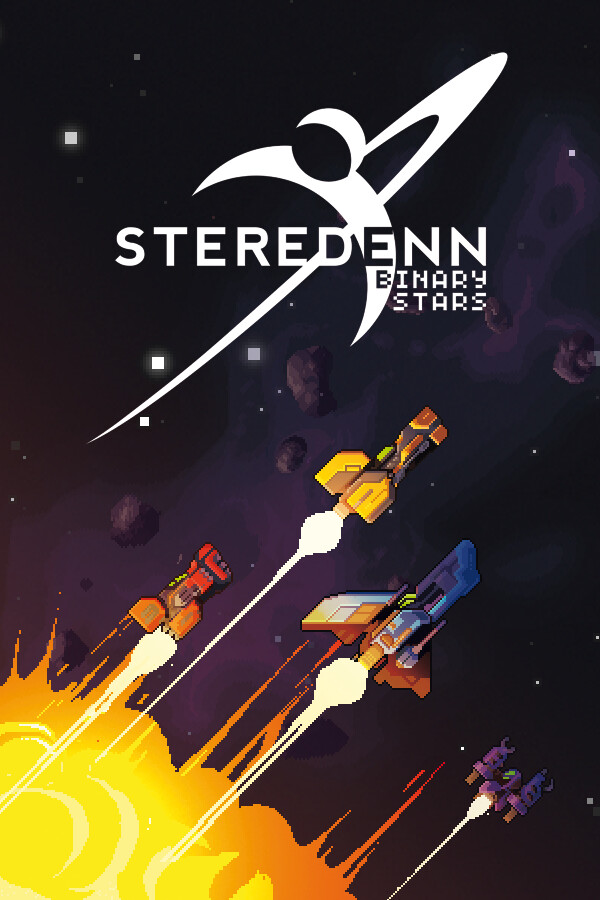
Steredenn ( PC (Steam) – Shoot 'em up, Bullet Hell – 2015 ) + TRAILER
Side-scrolling shoot 'em ups with elements of bullet hell-lite are definitely an acquired taste, but I think addition of session-based roguelike progression is what may set Steredenn apart... for better or worse. Add semi-randomized levels into the mix, while still adhering to progression structure, and that's a lot of hyphens to have in your opening.
Story included here is of “blink and you'll miss it” variety, but from the moment your base ship gets blown up by mysterious enemy to that final showdown action never relents in the slightest. You don't get to choose levels and their randomization factor is still influenced by gradually scaling difficulty with each new boss thrown in your way. How this entire thing operates: you have one life and a health bar, you clear levels full of enemies and face a boss at the end. Defeating that boss is your primary way to restore health and choose one of randomized upgrades offered, ranging from higher damage for specific enemy types, damage resistance, etc. Pool of these upgrades is relatively small and it won't be long before you find what synergises with your specific ship/weapons of choice. Right, dakka. You can carry two shootas and they [randomly] drop after you blow up supply ships. When you add ships themselves ranging from all-rounder, slow, fast and specialist, each with their own unique skill and starting weapon, you realize there's plenty of moving parts here to work here. Final, possibly deal breaking, touch is the following – you cannot take breaks from your current run. Meaning you need to beat Steredenn in a single sitting and when RNG works against you that can get the nerves really acting up. Let's just say dropping the game was on the table for me at one point.
Frantic action wouldn't be half as intense where it not for game's outrageously HYPE music tracks. I was born to save the universe from the moment I started playing. Not that pixel art visuals detract and, in fact, manage to clearly convey what's going even as explosions and effects ramp up. Your ship transforming to warp to next level is a neat touch, for example.
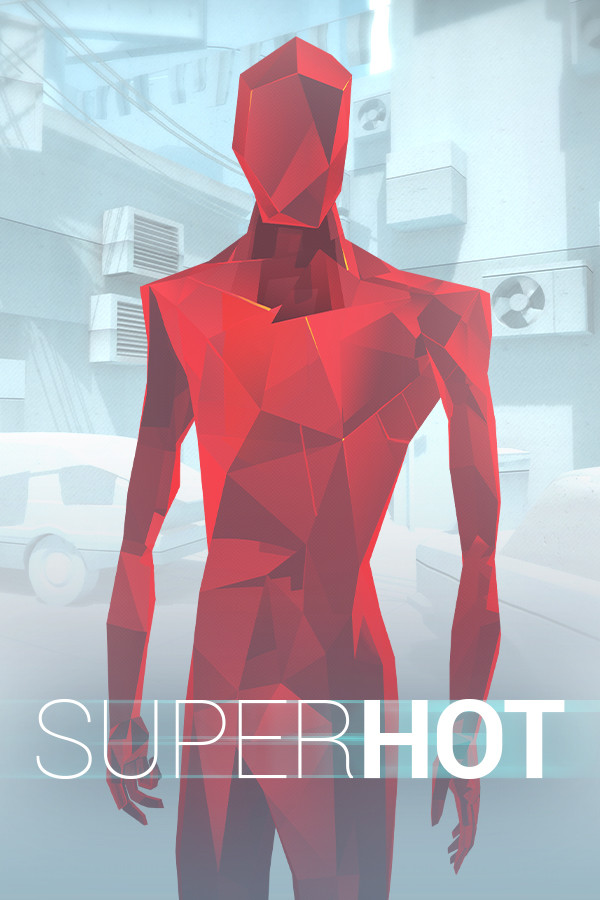
SUPERHOT ( PC (Steam) – FPS – 2016 ) + TRAILER
You could say SUPERHOT operates on a gimmick and you wouldn't be wrong. Certainly defines the package itself and is one of those examples where chosen narrative supports it due to, what's that fancy word yet opposite... right, ludonarrative synchronicity. Not that there is much of a story here, but that's all the more reason to keep it under tight wraps because it's so short and should be experienced. You need to re-examine video game obsessions after this one.
That aside what about the gameplay? Well, it's a FPS of its own breed that ends up playing more like an action puzzle with inclusion of manually aiming attacks. Quick reaction times are somewhat less of a keystone here because the trick is time moves only when you do. You and enemies both bite the dust with a single bullet no matter where it hits, but making weapons extremely limited in use and disposable with a throw to stun your enemies adds even more unknowns to this equation. SUPERHOT beats to its own rhythm which means some trial and error is inevitable due to levels being carefully constructed to ensure each has a logical route. Frustration of thinking you're a one-man army actually becomes reality once you master that “go, execute everyone, go” loop and marvel at your own replays. Barely clocking in at two hours or so you could argue play time is a serious problem here, but there's more to do from the piOS menu and challenges/endless mode stand as the most prominent features.
Intensely bright and saturated levels make bright red enemies pop out like there's no tomorrow and that's how it should work considering ability to quickly discern spawning enemies is what will you keep alive for that extra second. My one complaint in the entire technical department is how disorienting jumping bodies can be and finicky nature of snatching weapons mid air. Looking back to title's humble beginnings, SUPERHOT sure turned out to be quite the marvel and you'll be dodging bullets in no time to this soundtrack. ONE OF US.

Mongrels ( Fantasy, Young Adult – 2016 – 300 pages ) + QUOTE
"Young Adult coming-of-age werewolf story" sounds like a recipe for disaster when observed through the lens of modern YA attempts, but if I had to describe Mongrels with a single word it would without a doubt, and in completely non-buzzword context, be visceral. Less due to gore and brutality, although there is both presented in almost casual manner, and more with how nitty-gritty it gets with some elements you don't really think about in most werewolf works.
To begin with, there's very little actual story here because meat of the novel is essentially seeing a child as he becomes this teenager who may or may not have the werewolf gene while being raised by his aunt and uncle, part of the triplet including his now deceased mother, with plenty of shenanigans to go along with the entire affair. Fact they both ARE werewolves means family is constantly on the move as that's how they see this life panning out. Or, well, that could just be because they're essentially what you'd call white trash aka almost social outcasts doing low end jobs, ditching disposable cars to hop from one state to another, etc. Adding the werewolf aspect simply reinforces this notion further because you can't stick around for a long time as someone will notice things going awry, you might "wolf out" at extremely inconvenient times meaning highly urban areas are very much off-limits and there's plenty of other stipulations a werewolf has to keep in mind. Interesting idea is that Libby and Darren both accept this lifestyle as something normal and necessary to keep the wolf nature within them alive. For example, in their view even finishing high school is an accomplishment unto itself because it means you were able to keep it together despite all the werewolf changes that come along by the time you're 12 or 13 and something like that takes a while to come to terms to with. Not to mention living on the outskirts of society means you want to start earning money as fast as possible and not entirely above board if payments are in cash.
Seeing as Mongrels is told from the point of view of the nephew, and story does bounce from present day and earlier years chapters, focus is almost entirely on the werewolf nature itself. Which is good because author has some interesting thoughts about it. It's important to point out these werewolves aren't hulking, feral man-wolves walking on hind legs stereotype, though. Not being above using humor to teach a lesson. Darren, bravado uncle looking to emulate his own father and his "war stories", imparts some knowledge to the kid as the book goes on. Ever wondered what happens when werewolves go to prison? Did you know your greatest enemy when shifting indoors are doorknobs? Yeah, yeah. On the other Libby is the straitlaced one keeping the trio together... and type to comment on how human and werewolf intestines are not the same. Eating some garbage as a werewolf might seem like a great idea, but if there's sharp tins in there they could just rupture your insides when you're human again. Book is filled with wisdom and anecdotes like these. Lest you get the impression this is a comedy it most assuredly isn't even with plenty of levity to go around because everyone is very casual about it and not bent on preaching to the reader. You'll also learn why werewolves tend to not mate with other werewolves and what may have given the rise to the werewolf stereotype. Not to mention why it's imperative to not leave anyone you wound survive. Ever.
All in all, werewolf existence is portrayed as rather miserable and ill-suited to wherever they go with, ironically, human side and their family keeping it all bearable. Making that whole "mate for life" quite the issue if your other half is an abusive werewolf who spent so long as a wolf he doesn't know how to shift back anymore. Being a YA novel you can see the big question answered from miles away and losing some of the suspense, though.
For some time I used something similar as a Kindle. really convenient to put 20 or so books on the tiny device without like you said having to lug all those books around all the time. Alas after the novelty had worn off, I stopped using it and gave it to a younger girl who enjoys reading so she might get some usage out of it.
If we are using Tier lists as a scale, I wouldn’t put Locke Lamora in S tier ranking. I enjoyed the story and ride it offered and can place it in A tier but not higher.
If book 2 ever comes out I will read it for sure but for me it isn’t on par with the likes of The Way of Kings or The Dresden Files which for me is top S tier fantasy.
My daily commute is 90ish minutes so audiobooks make that time spent driving less wasted.
Interesting. I’ll keep in that in mind. I also used to have a longer commute few years back and got into audiobooks because of it. Something that annoys me beyond belief is when narrator change mid-series for absolutely no reason like they did with Malazan series, for example.
OMG yes, when I was listening through Jim Butcher’s: The Dresden Files. Suddenly after book 11 or so they changed the narrator so all familiar voices which I grew accustomed too had to be re-learnt.
some trial and error is inevitable due to levels being carefully constructed to ensure each has a logical route.
Now there’s an oxymoron if I’ve ever heard one. Even if I hadn’t played SUPERHOT and didn’t know about the cage level which is deliberately designed to trick you into dying if you try doing what’s “logical” (and remains one of the hardest levels even after you know what you’re supposed to do), it doesn’t change the fact that games should be carefully constructed to avoid trial and error. If a game has trial and error, it’s an explicit example of lack of care.
You need to re-examine video game obsessions after this one.
I dunno; if I were playing an online-only game and got contacted by the developers explicitly asking me to stop playing, I’d quit and play something else. ☺
I think you can go too far in both extremes. Trial and error can be rectified by presenting situations where player has to at least logically deduce what to do without following a very specific route set by developers as the only viable one, but one the other hand pursuing the attempt to avoid trial and error you can end up delving into idiocy of focus testing where not even forks in the road may be allowed because they’d confuse the player. I’ve found industry is leaning much more towards the latter these days simply because literally everyone has to be able to play everything.
I dunno; if I were playing an online-only game and got contacted by the developers explicitly asking me to stop playing, I’d quit and play something else. ☺
See, I’d take that as a challenge and keep going. :D
pursuing the attempt to avoid trial and error you can end up delving into idiocy of focus testing where not even forks in the road may be allowed because they’d confuse the player.
I’m not sure what you’re trying to say here. If those forks are like the one in Dandara where you fight your way though late-game hazards and THEN hit the progression-based roadblock, I’d say a bit more focus testing would do the game good (just put the roadblock right at the fork to avoid needless frustration). Alternately, if the fork just leads to an empty dead end, then yeah I’d be confused because that would just be a waste of time (and why would you deliberately waste the player’s time?). I guess what I’m trying to say is that if the fork either ended with an optional little upgrade (think +5 missiles in Metroid) or joined back with the main path (while also making it clear which way is forward), it wouldn’t really be trial and error since you either go the right way or get a little reward for going the wrong way. Can you think of another example that better illustrates your point?
Not exactly because my initial thoughts for trial and error always go back to older RPGs with “trap builds” where player has no idea a skill is useless or at least subpar compared to other skills in the game. Something like thinking diplomacy will carry you throughout the entire game and then game becomes combat-heavy and you have no way to progress.
I guess more notable examples would be something like Dishonored or now infamous Half-Life 2, though.
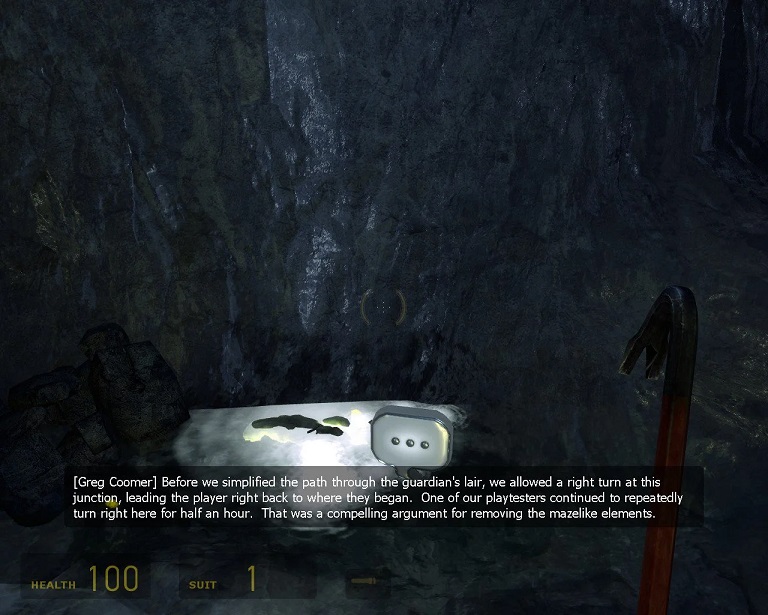
my initial thoughts for trial and error always go back to older RPGs with “trap builds” where player has no idea a skill is useless or at least subpar compared to other skills in the game.
and you’re citing that as a…good thing? Or are you saying that you can’t think of any examples of good trial and error because your mind always defaults to bad ones? If it’s the latter, that says more than I ever could.
Also, while I haven’t played Half-Life 2, I have beaten Phantasy Star 1, so I can attest that first-person mazes without a map can be confusing, especially when certain unmarked paths suddenly send you to different (earlier) parts of the level. That’s even worse than dead-ends.
Not at all, it’s a horrible thing. I’m merely falling back to RPG examples because that’s what I’m most familiar with.
Oh, okay; gotcha.
…but that still doesn’t give me an example of “good” trial and error, which is what I was asking for.
I don’t know. I think it just comes down to when you give the player the information he needs to make an informed decision it kinda ceases to be a trial and error thing. Then again, that’s also when you HAVE something to work with and not just game going against the generally accepted norm for its own sake.
You got me here.
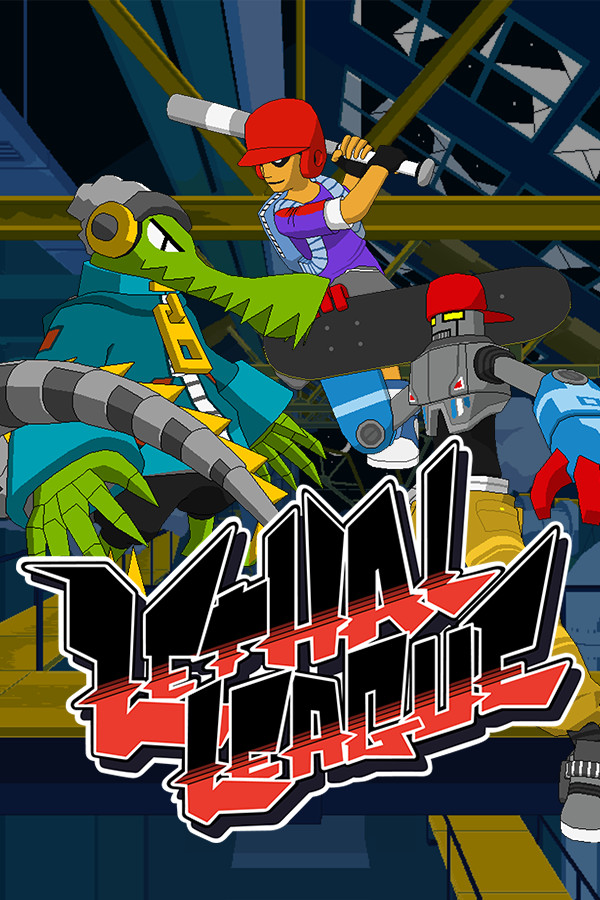
Reading?
Cant say I know YA Werewolf.
I have just finished The lies of Locke Lamora and The Running Man.
Feeling brave now to tackle all of DUNE.
Although I must admit pages blur when I try to read but I ABSOLUTELY love Audiobooks for in the car during my daily commute.
Have Fun my friend!
I need to read at that at some points because I keep hearing it touted as one of the better modern fantasy [series] works. What would you say is the main selling point?
Dune is pretty much a selective read. At least check out what Frank Herbert himself wrote. I haven’t found anything co-written by his son and Anderson to be on the same level and at times even missing the point entirely of the original.
I’ve actually gone back to reading after having audiobook phase simply because work gaps now allow it. Buying myself a Kindle has been a lifesaver compared to lugging around actual books, though.